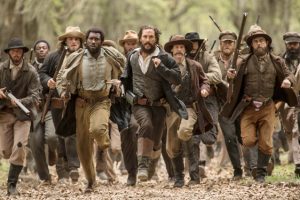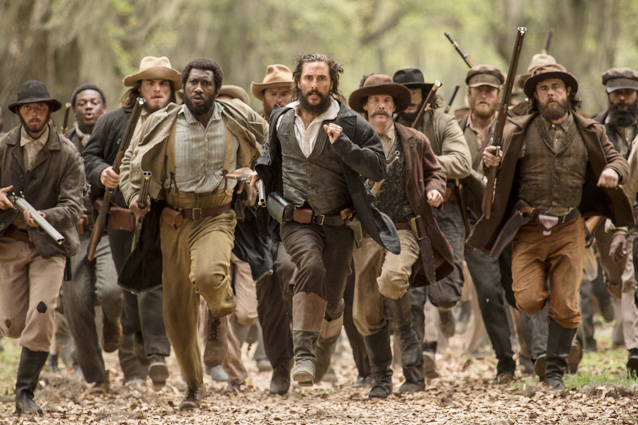Interview: Gary Ross on “Free State of Jones”
Posted on June 27, 2016 at 3:37 pm
Gary Ross, best known for the first “Hunger Games” movie, spent years researching the real-life story behind his new film, “Free State of Jones,” about a group of deserters from the Confederate Army and runaway slaves who declared their independence from the legal and economic oppression of the Confederacy. You can see more about the story in the “Free State of Jones” website. His commitment to authenticity included filming in the actual locations where the events took place, including the swamp where Newt Knight (played by Matthew McConaughey) and his group hid from the Confederate soldiers. “We were in the swamp for a long time but it was worth it. We were shooting where the true story actually occurred so that was kind of inspiring.” There are several books about the historical events, but Ross reviewed the original documents. “I did a lot of primary source research. When you go to the website you will see that most of the things that we cite are not secondary historians but are primary sources. I studied for about 2 to 3 years before I ever even started writing the script….There’s a tremendous amount of original sources that survived. We use a ton of sources from what was called the OR, the Original Records of the War Between the States which is the most reliable source. And we used a lot of letters to corroborate this evidence from former Confederate soldiers they were writing about the rebellion to one another as it was going on so there’s a tremendous amount of actual primary sources that exists, I mean hundreds and you can see them on the website.” 
The film is set in the Civil War era, but some scenes show us Knight’s descendent in a 1948 miscegenation trial. Ross said, “I think that we need to see some perspective. It was a way of almost trying Newt in absentia a century later. These issues that were necessarily unresolved. It also let us explore what happens to memory when you lose connection with your past. This is a century later and it is still going on. I think that the fact that there was in fact this real trial which was still bizarre was an important thing to include.”
He talked about seeing the jobs of writer and director separately. “I don’t see directing as an extension of writing. It is to certain degree because you are storytelling but it’s its own thing. But you are never afraid to keep writing when you’re a writer there so I actually have more flexibility on the set, I don’t see the script as such a lock or rigid thing. And directing informs your writing. When you’re directing you think of it the more cinematically, you think, ‘Are they going to be able to actually do it?’ There is less waste in the writing. There is more of a cognizance of the cutting pattern. There is more even awareness the things like sounds design, so yes I definitely think it informs how I write now.”
There are some common themes between this real-life story and the allegory of “Hunger Games.” “Individual and personal liberty is tremendously important to me and I think that this has been somethings that has been expressed through a lot of the work that I’ve done one way or another. Newt used Scripture to justify his actions. It began as an organic rebellion. It was anti-tax rebellion at the outset but it grew into a larger meaning of freedom and it broadened out into a bigger definition of what freedom was. Once he glimpsed what true freedom meant he couldn’t tolerate his wish for personal freedom and then accept unfreedom for other people so I think that Newt expanded and grew and in his worldview and that led him been an advocate for African-Americans in the postwar period.”
Ross wants to make sure that audiences see the oppression that continued after the end of the Civil War. “The war didn’t and in 1865. The conflicts of the war went to 1876. We can see this as a continuum in the fight for freedom. I think that the only movies that existed prior to these were the original “Birth of a Nation” and “Gone With the Wind” so the record needs to be set straight because they are very misleading about the reconstruction era. I hope people who see this can talk about interracial reliance and interracial alliance. I think that’s tremendously important. Newton Knight as an ally of African-Americans in the postwar era is a tremendously important thing to celebrate. Only when we unite in America will we ever make true progress.

